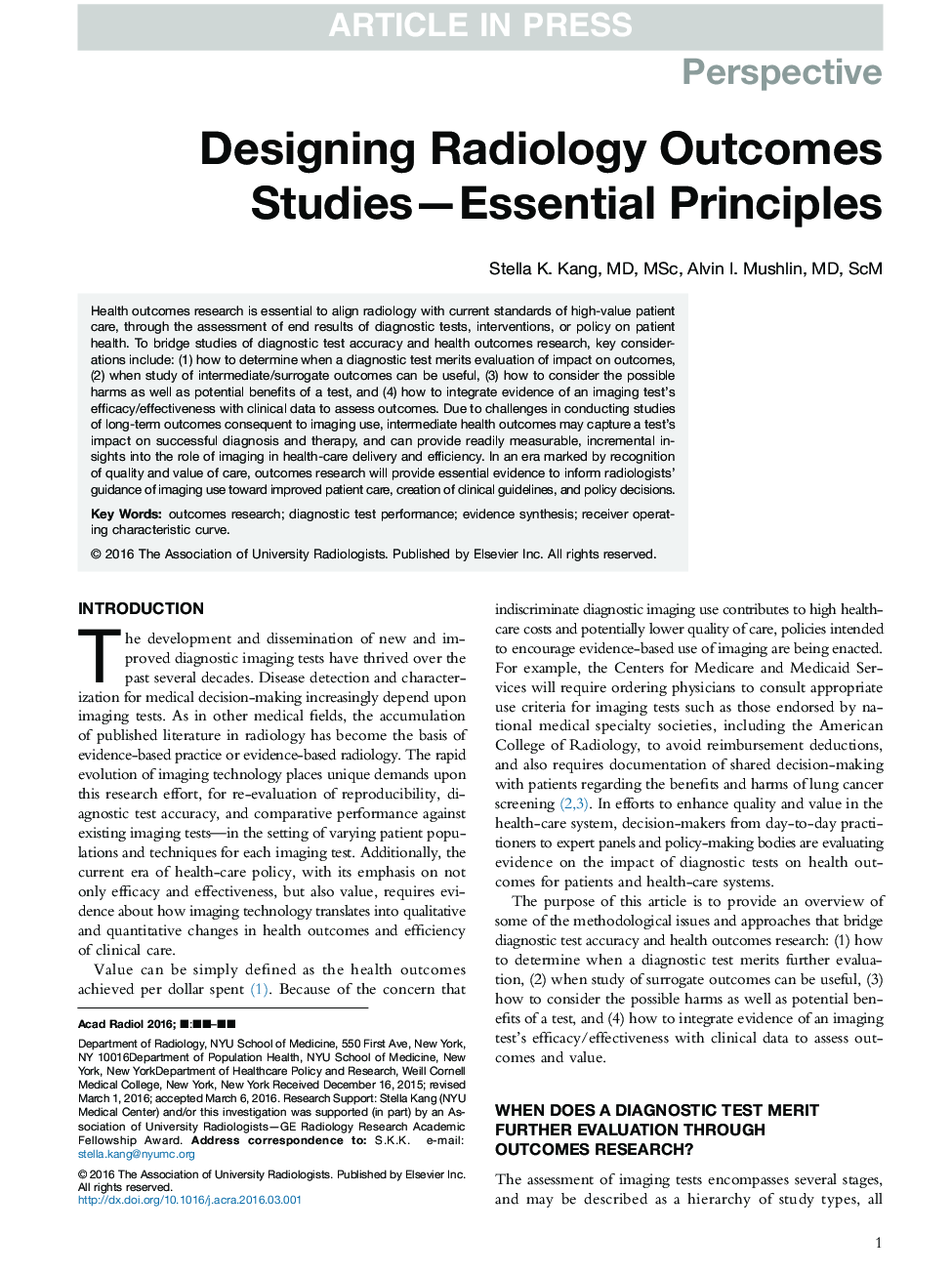| Article ID | Journal | Published Year | Pages | File Type |
|---|---|---|---|---|
| 6242601 | Academic Radiology | 2016 | 7 Pages |
Abstract
Health outcomes research is essential to align radiology with current standards of high-value patient care, through the assessment of end results of diagnostic tests, interventions, or policy on patient health. To bridge studies of diagnostic test accuracy and health outcomes research, key considerations include: (1) how to determine when a diagnostic test merits evaluation of impact on outcomes, (2) when study of intermediate/surrogate outcomes can be useful, (3) how to consider the possible harms as well as potential benefits of a test, and (4) how to integrate evidence of an imaging test's efficacy/effectiveness with clinical data to assess outcomes. Due to challenges in conducting studies of long-term outcomes consequent to imaging use, intermediate health outcomes may capture a test's impact on successful diagnosis and therapy, and can provide readily measurable, incremental insights into the role of imaging in health-care delivery and efficiency. In an era marked by recognition of quality and value of care, outcomes research will provide essential evidence to inform radiologists' guidance of imaging use toward improved patient care, creation of clinical guidelines, and policy decisions.
Keywords
Related Topics
Health Sciences
Medicine and Dentistry
Radiology and Imaging
Authors
Stella K. MD, MSc, Alvin I. MD, ScM,
